Story
PML Scientists Share Evidence on Marine Carbon Dioxide Removal in Westminster
21 November 2025
Scientists from Plymouth Marine Laboratory (PML) met with MPs in Westminster to share their latest evidence on Marine Carbon Dioxide Removal (mCDR) – and to explore the UK’s opportunity to lead the development of innovative, responsible approaches as part of the fight against climate change.
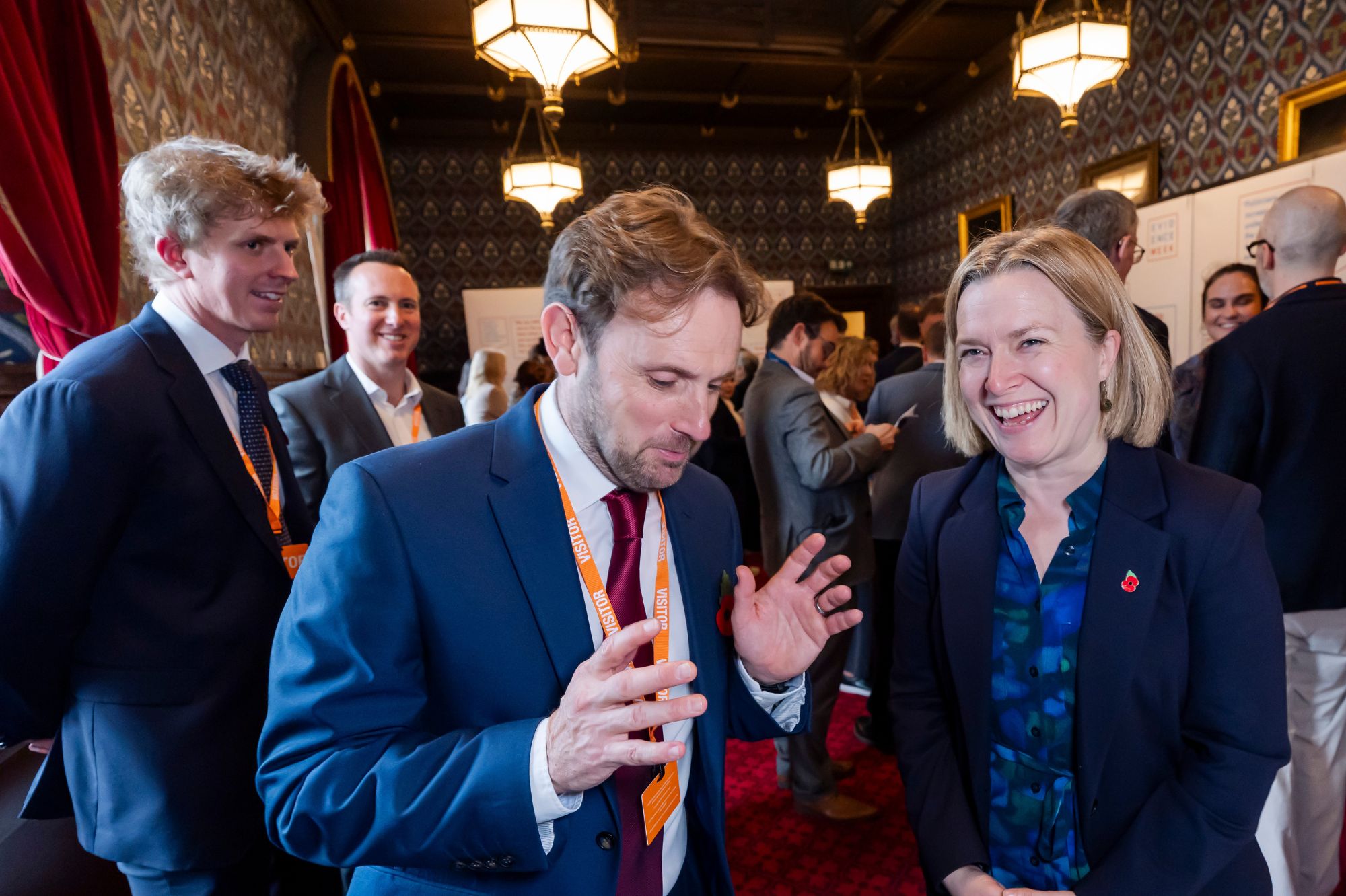
The discussions took place during Evidence Week in Parliament, which offers an opportunity for UK researchers to connect with policymakers and advisers, to support evidence-based decision making.
PML’s Professor Tom Bell and Guy Hooper, alongside Professor Paul Halloran of the University of Exeter, presented their latest insights on the potential of mCDR, the risks, and why the UK is uniquely positioned to explore ocean-based carbon-removal as part of the contribution to Net Zero emissions.
The trio work closely together on SeaCURE [Seawater Carbon Unlocking and REmoval] , a marine-based carbon removal project that could pave the way for large-scale atmospheric CO2 reductions, helping to tackle the CO2 emissions from sectors with emissions that are difficult to reduce (e.g. aviation).
What is SeaCURE, and how does it work?
The ocean already absorbs around 25% of the carbon dioxide (CO₂) that is emitted each year by human activity. SeaCURE’s approach seeks to enhance this capacity further by extracting CO₂ from seawater, enabling further absorption of atmospheric CO₂.
Situated at Weymouth SEA LIFE Centre, the SeaCURE pilot plant was built and operating earlier this year with support from the UK Government’s Department for Energy Security & Net Zero (DESNZ). It is a real-world demonstrator of ocean-based carbon dioxide removal, and the UK’s first operational pilot facility.
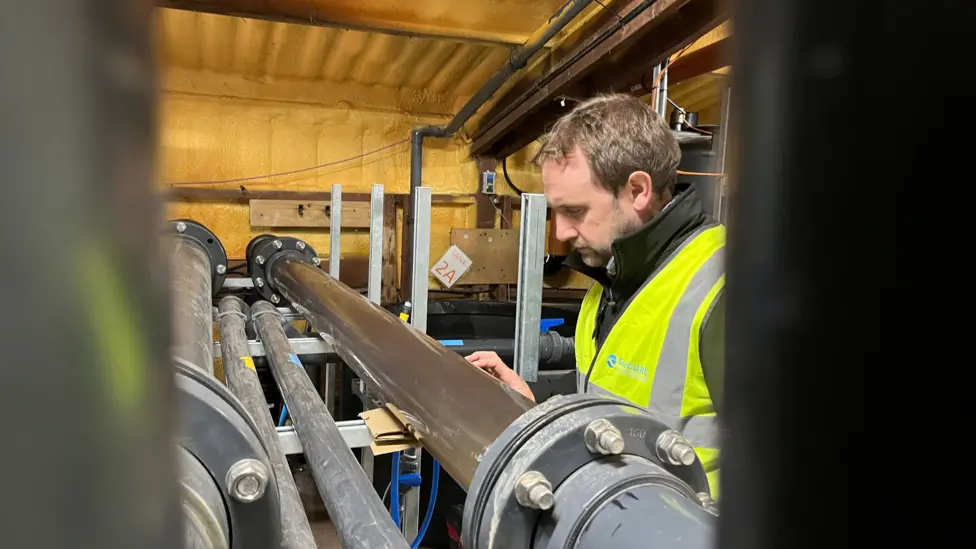
Image caption: In an exclusive feature with the BBC, SeaCURE Project Co-lead Professor Tom Bell, Ocean-atmosphere biogeochemist and lead on Air-Sea Exchange research at Plymouth Marine Laboratory, hosted a tour of the pilot plant.
The process works by acidifying seawater to convert dissolved carbon into gaseous CO₂, which can be then captured and stored geologically. The water is then rebalanced before returning to the marine environment.
The pilot plant successfully extracted CO₂ from seawater and produced near-pure CO₂. Continually applying this approach on one per cent of the ocean’s surface annually could in theory remove nearly one-third of today’s global emissions, but the project has identified a number of important questions that need to be robustly assessed before anything like this scale of operation could take place.
Evidence Week offered MPs, peers and parliamentary staff an opportunity to speak directly with the scientists, gaining insight into how emerging marine mCDR technologies like SeaCURE could contribute to the UK’s Net Zero commitments.
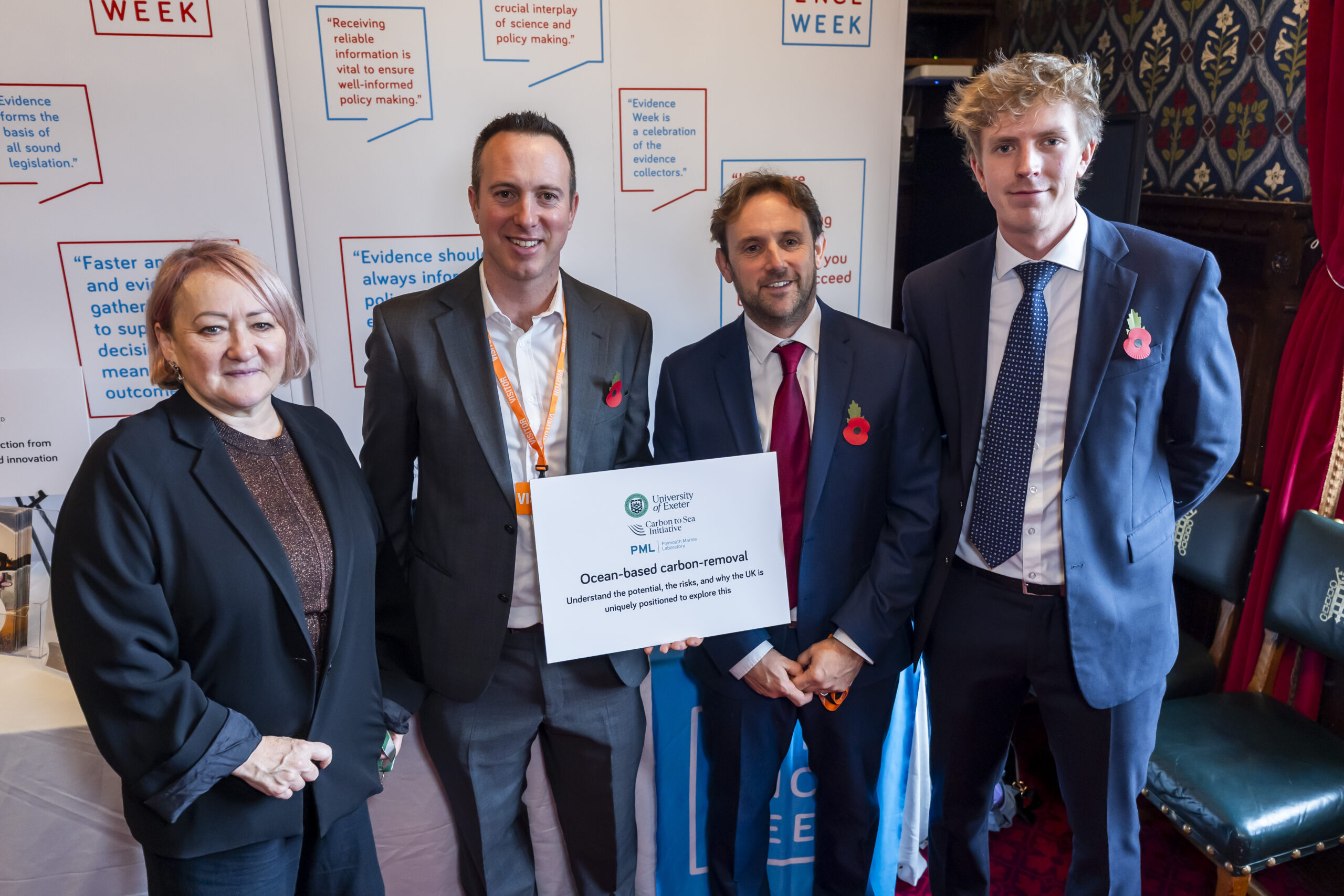
Image: from left to right, Kerry McCarthy MP, Prof Paul Halloran, Prof Tom Bell and Guy Hooper
Throughout the morning, MPs, peers and parliamentary staff visited the SeaCURE team to discuss how ocean-based CDR could complement – but never replace – rapid emissions reductions.
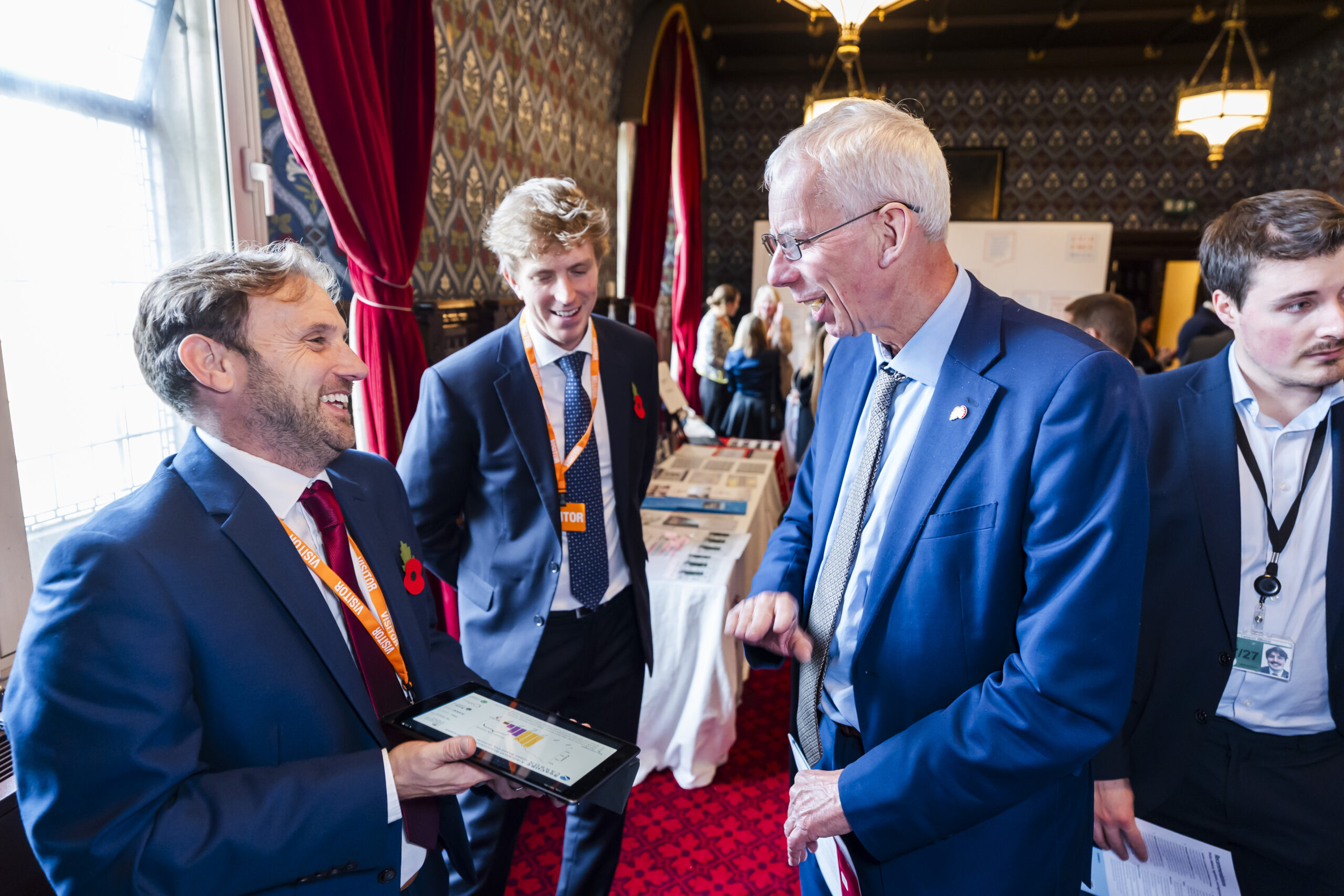
Image: From left to right, Prof Tom Bell, Guy Hooper and John Milne MP speaking at Evidence Week
Professor Tom Bell said:
“It was fantastic to speak directly with decision-makers about what marine carbon removal can and can’t do. The science is moving quickly, but so are the questions we need to answer. Evidence Week gave us the chance to explain not just the promise of this approach, but the careful research and safeguards required before scaling it.”
Professor Paul Halloran said:
“It was a privilege to be able to take part in Evidence Week and speak to so many highly engaged MPs, Lords and their teams. The interest and enthusiasm for our research on marine Carbon Dioxide Removal was incredible. We now look forward to working with many of those we spoke to, to reinforce the UK’s role as a global leader in this key aspect of our Net Zero future.”
Guy Hooper, PhD student at PML and UoE, and who recently joined PML Applications as an Applied Marine Technician, said:
“Our ongoing work shows that direct ocean carbon capture and storage (DOCCS) technology is potentially a very powerful tool, but further investigation on the biological effects is now urgently needed in order to understand when and where they might occur and how they can be mitigated.”
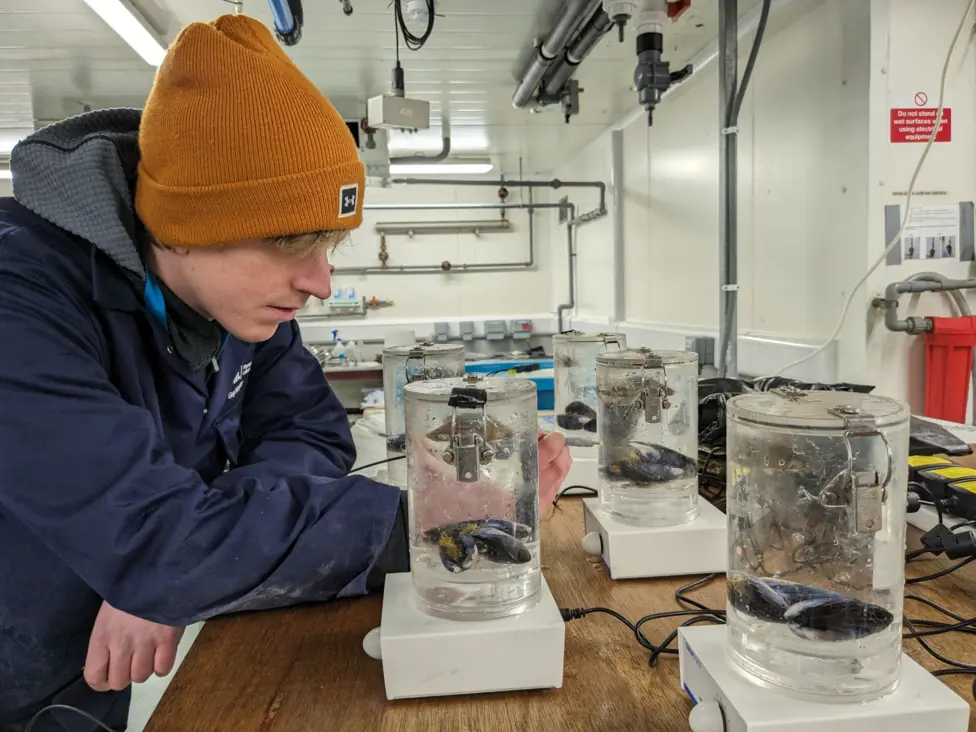
Image caption: Guy Hooper – PhD researcher with PML and the University of Exeter, and who has recently joined PML Applications – is researching the potential environmental impacts of Ocean-based Carbon Dioxide removal. Image credit: BBC.
MPs attending included Andrew George MP, Bayo Alaba MP, Calvin Bailey MP, Carla Denyer MP, Emily Darlington MP, Gill Furniss MP, Jeff Smith MP, John Milne MP, Kerry McCarthy MP, Sadik Al-Hassan MP, Sian Berry MP, Steve Race MP, Tom Collins MP and Wera Hobhouse MP.
Evidence Week, now in its eighth year and organised by Sense about Science, gives parliamentarians direct access to leading UK research.
Tracey Brown, Director of Sense about Science, said:
“MPs must engage with an astounding breadth of subjects and sources any given week. This is why Evidence Week in Parliament offers two days of rapid-fire briefings on cutting-edge tools and insights with some of the UK’s leading research groups. We’re delighted that MPs have the chance to hear directly about new insights on carbon dioxide reduction strategies that can support the UK’s Net Zero strategy.”
